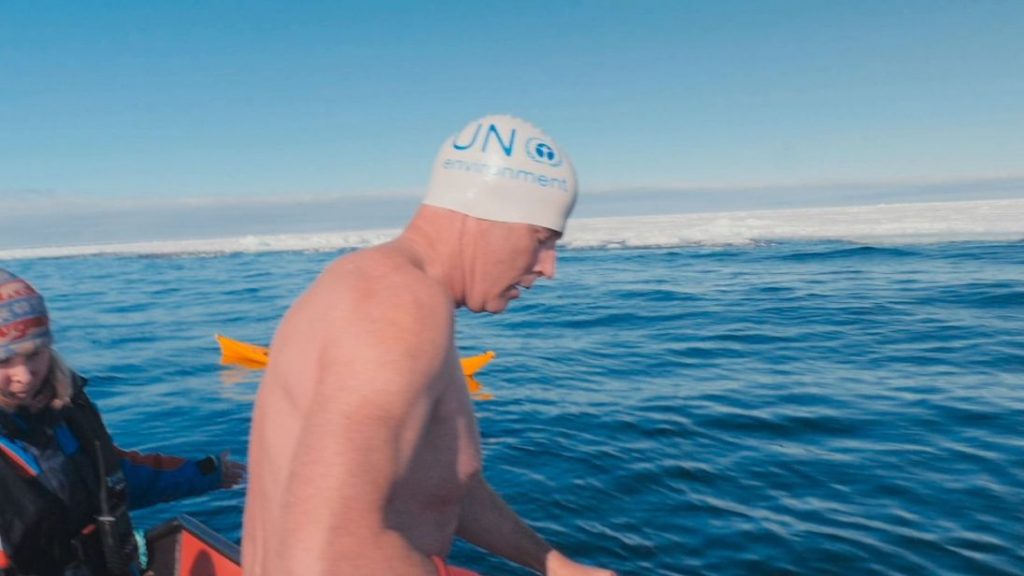A deposit return scheme for single-use bottles is going to be introduced in England subject to consultation, the Government has confirmed.
Plastic, glass and metal containers would be included in the scheme with a goal of increasing recycling rates and slashing the amount of waste polluting the planet.
A consultation held later this year will examine the details of how such a scheme would work, but it is likely to be in place by the end of this Parliament.
:: Bottle return scheme is ‘a victory for the seas’
UK consumers use an estimated 13 billion plastic drinks bottles a year, but more than three billion are incinerated, sent to landfill sites or left to pollute the country’s streets, countryside and seas.
Plastic bottles make up a third of marine debris – and their impact on the environment has been under scrutiny since Sky launched its Ocean Rescue campaign, which has highlighted the blight of single-use plastics on the planet.
“We can be in no doubt that plastic is wreaking havoc on our marine environment – killing dolphins, choking turtles and degrading our most precious habitats,” the Environment Secretary Michael Gove said.
“It is absolutely vital we act now to tackle this threat and curb the millions of plastic bottles a day that go unrecycled,” he added.
Some parts of the UK have already been considering a deposit scheme. Wales said it would consider such a scheme back in September last year, shortly after Scotland committed to the idea of a deposit return scheme.
The Government says it hopes “to talk to the devolved administrations about the scope for working together on this important issue”.
Similar deposit return schemes already operate in countries such as Denmark, Sweden and Germany.
A deposit return scheme sees consumers pay an upfront deposit when they buy a drink, ranging from 8p in Sweden to 22p in Germany, which is redeemed on the return of the empty drink container.
:: Deposit return schemes: A small price to pay for clean seas
Other types of schemes being considered by the UK include cash rewards for returning drinks containers without enforcing an upfront deposit.
This could be done through a network of ‘reverse vending machines’ where money is returned whenever a plastic or glass bottle is inserted.
Once a bottle is returned, businesses are then responsible for making sure they are effectively recycled – a move that has led to a 97% recycling rate in Germany.
Although the Environment Secretary’s announcement was widely welcomed, some are concerned the move is a token effort.
Elena Polisano, oceans campaigner at Greenpeace UK, said: “Michael Gove has a golden opportunity to introduce an effective deposit return system to help reduce the amount of plastic ending up in our environment. But for (the scheme) to work well, it can’t be a token effort. It must include all plastic bottles, glass bottles and drinks cans, and be rolled out in shops all across the UK.”
The announcement follows the Government’s ban on plastic microbeads and the introduction of a 5p plastic bag charge.
The bag fee has led to nine billion fewer bags being distributed in the UK.
Earlier this month it was announced that the Chancellor is calling for evidence on how the tax system can be used to cut down on single-use plastics.
A powerful committee of MPs launched an inquiry into the impact of disposable packaging on the UK’s environment last year.
Next month, Commonwealth members will gather in London to agree measures to further protect the world’s oceans.
There are over 150 million tonnes of plastic in the world’s oceans and every year one million birds and over 100,000 sea mammals die from eating and getting tangled in plastic waste.
By 2050, it is predicted that the total amount of plastic in the oceans will weigh more than the total amount of fish.
From – SkyNews










